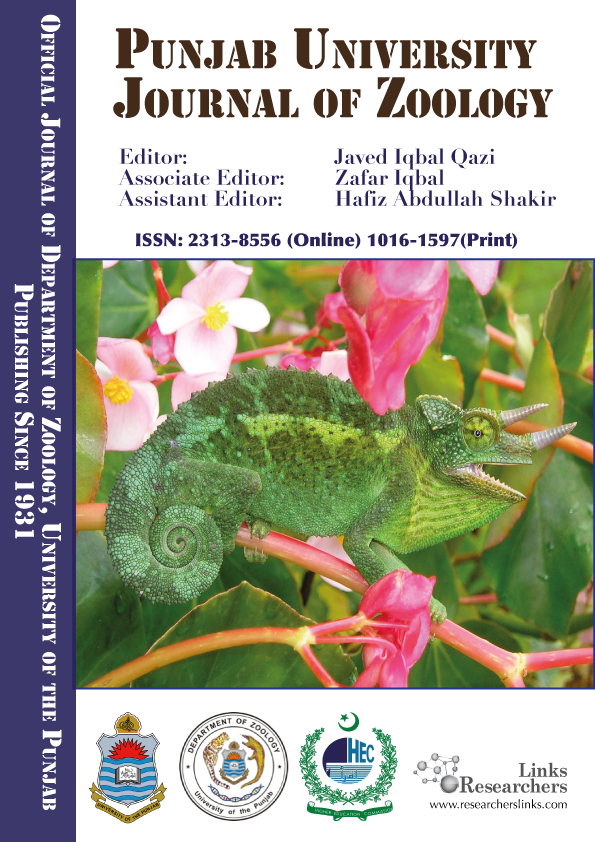1Department of Entomology, College of Agriculture, University of Sargodha, Sargodha 40100, Pakistan
2Institutue of Plant Protection, Chinese Academy of Agricultural Sciences, Beijing, P.R. China
Corresponding author: Muhammad Zeeshan Majeed
zeeshan.majeed@uos.edu.pk
ABSTRACT
Armyworm species Spodoptera litura Fabricius (Lepidoptera: Noctuidae) is one of the destructive polyphagous insect pests worldwide and has attained field-evolved resistance to most of the conventional synthetic insecticides. In this study, some previously selected most effective biorational synthetic, botanical and microbial insecticidal formulations were evaluated either alone or in binary combinations against 3rd instar larvae of S. litura under laboratory and then under the field conditions. In both trials, insecticidal treatments affected significantly the mean mortality or reduction of S. litura larvae recorded both at two and five days post-treatment. In laboratory bioassay, combinations of flubendiamide and A. indica, flubendiamide and N. tabacum and of spinetoram and A. indica formulations caused significantly high mortality (100%), followed by B. thuringensis and S. litura-NPV (94.92%) and A. indica and B. thuringensis (93.22%) and exhibited a synergized toxicity against S. litura larvae as compared to other treatments. In two years field trials, binary combination of flubendiamide and spinetoram showed an average larval reduction of 59 – 100%, followed by 100% larval reduction exhibited by flubendiamide and spinetoram alone and by the combination of flubendiamide and A. indica formulations at 5th day of application. While, minimum larval reduction was recorded for both microbial insecticides alone and in combination for both years. Overall results of this in-vitro and in-situ evaluation demonstrate the effectiveness of biorational insecticidal formulations and recommend their incorporation in integrated management of S. litura.
Novelty Statement | Laboratory and then field evaluations of some promising botanical, microbial and non-conventional synthetic insecticidal formulations against 3rd instar larvae of armyworm (Spodoptera litura) comprise the novelty of this study.
To share on other social networks, click on any
share button. What are these?







